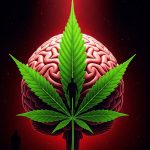positive results”
MDMA for PTSD: Is the Research Too Complicated?
As it turns out, researching the efficacy of MDMA to treat PTSD may be pretty complicated. The initial efforts to secure governmental sanction for a psychedelic substance for mental health care, in this case, MDMA, are facing some serious scrutiny over the clinical trial process, the Washington Post reports.
MDMA: The Promising Treatment for PTSD
MDMA has long been lauded as a treatment for PTSD, which affects 6% of the U.S. population. According to a Multidisciplinary Association for Psychedelic Substances (MAPS) 2023 study, the drug has shown promising results in treating PTSD. As High Times reported, 86% of participants in the MDMA group showed improvement in their standard PTSD assessment, while 69% of those in the placebo group also improved. This standard assessment evaluates the intensity of PTSD symptoms, including anxiety, phobias, insomnia, and emotional numbness.
The Potential of MDMA: A Game-Changer for PTSD Treatment
When the study concluded, an impressive 72% of people in the MDMA treatment group no longer met the criteria for PTSD, compared to only 48% of the placebo group. Given the severity of PTSD and the potential of MDMA as a treatment, this research was met with enthusiasm.
MDMA vs. Traditional Treatments: A Clear Winner?
While SSRI antidepressants like Zoloft are FDA-approved to treat PTSD, research shows they are not always effective. In fact, the study on MDMA showed a response rate of 86%, significantly higher than the 60% response rate of traditional treatments. This makes MDMA a potential game-changer in the world of PTSD treatment.
The Complications of Studying MDMA for PTSD
However, an independent analysis into the reliability of patient studies supporting the FDA application for MDMA has revealed some challenges. Compared to other treatments, there are serious hurdles associated with studying and implementing psychoactive substances like MDMA. While the euphoria and positive effects of MDMA may be seen as a benefit, it can also make it difficult to conduct a reliable study.
The Challenges of Studying MDMA for PTSD
One of the biggest challenges in the MDMA trial was the lack of “blinding” in the placebo group. Participants who received a fake version of MDMA could easily tell they were not receiving the real thing because they did not experience any changes in perception or euphoria. This compromised the validity of the results, as noted in a draft report by the nonprofit Institute for Clinical and Economic Review (ICER).
Biased Results: The Role of Therapists in MDMA Studies
Another challenge in studying MDMA for PTSD was the potential bias of therapists involved in the trial. As mental health support, therapists may have been biased in favor of MDMA, as well as the participants who had previous positive experiences with the drug. This lack of neutrality could have influenced the results and raised concerns about the validity of the study.
The Pressure to Report Positive Results
The report also highlighted worries that participants who received MDMA may have felt pressured to report positive results. This pressure could have skewed the data and compromised the reliability of the study. As the debate over the use of MDMA for PTSD continues, it is clear that further research and careful consideration are needed to fully understand its potential as a treatment option.







